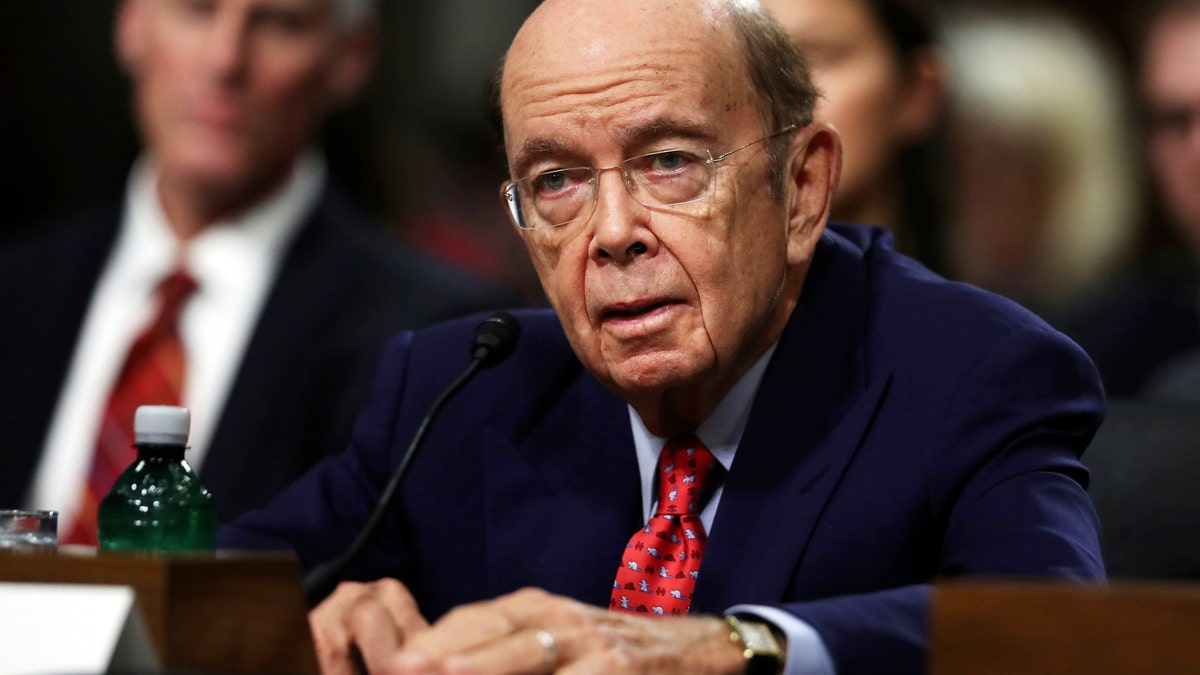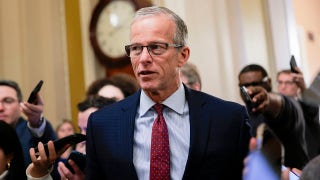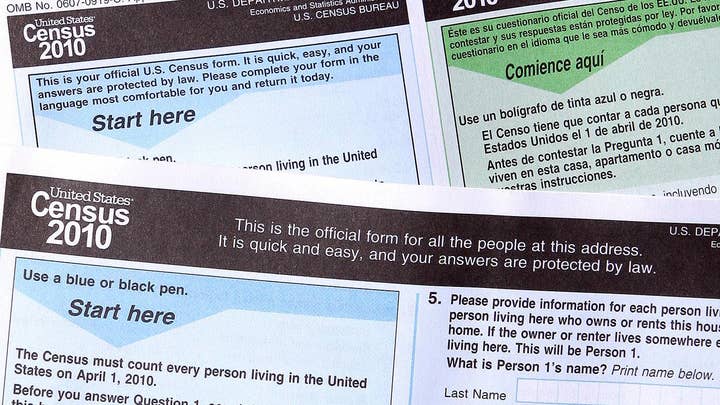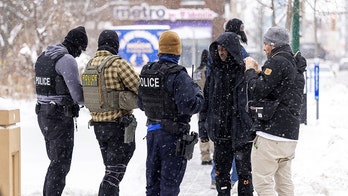
Commerce Secretary Wilbur Ross can't be questioned in lawsuits challenging his decision to add a citizenship question to the 2020 census, the Supreme Court ordered. (AP, File)
The Supreme Court issued an order Monday night blocking questioning of Commerce Secretary Wilbur Ross in connection with lawsuits challenging his decision to add a citizenship question to the 2020 census.
A federal court in New York previously had ruled that questioning of Ross could proceed as part of suits by a dozen states and big cities. The plaintiffs claim the question will discourage immigrants from participating, diluting political representation and federal dollars for states that tend to vote Democratic.
U.S. District Judge Jesse Furman had based his ruling requiring Ross to submit a deposition on concerns about Ross' truthfulness in relating how the decision to add the citizenship question came about. The judge noted that Ross claimed in March, when the decision to add the citizenship question was announced, that he considered adding it after a request to do so last December from the Justice Department.
"The record developed thus far, however, casts grave doubt on those claims," the judge wrote in September.
However, earlier this month, Justice Department lawyers filed a new document in the case in which Ross said he now remembers speaking with former senior White House adviser Steve Bannon in spring 2017 about adding the question. In the recent court filing, federal government lawyers said Ross recalled that Bannon called him in the spring of 2017 to ask if he would speak with Kansas Secretary of State Kris Kobach about Kobach's ideas about adding a citizenship question to the census.
The lawyers wrote that Ross also discussed adding the question with Attorney General Jeff Sessions in the spring of 2017 and at other times.
OBAMA TELLS VOTERS TO REMEMBER 'WHO STARTED' ECONOMIC RECOVERY
The administration has maintained that questioning Ross would be inappropriate. Sessions himself waded into the issue last week when he said in a Heritage Foundation speech that Furman's order represented an improper attempt "to hold a trial over the inner workings of a Cabinet secretary's mind."
The Supreme Court did allow the deposition of acting assistant attorney general John Gore to go forward, over the dissent of Justices Neil Gorsuch and Clarence Thomas.
GOODLATTE PREVIEWS ROSENSTEIN INTERVIEW WITH HOUSE LAWMAKERS BEHIND CLOSED DOORS
A trial is scheduled to begin in New York on Nov. 5, although Gorsuch suggested in a four-page opinion that Furman could delay the proceedings. Gorsuch said he "sees no reason to distinguish between Secretary Ross' deposition and those of other senior executive officials."
The court's order on Ross will remain in place indefinitely assuming the administration files a fuller appeal with the justices within a week.
The Associated Press contributed to this report.












































